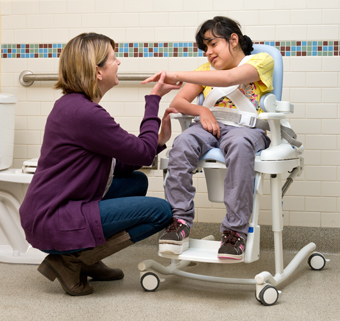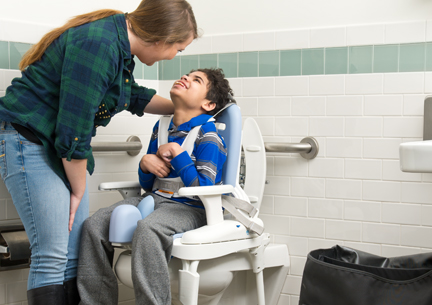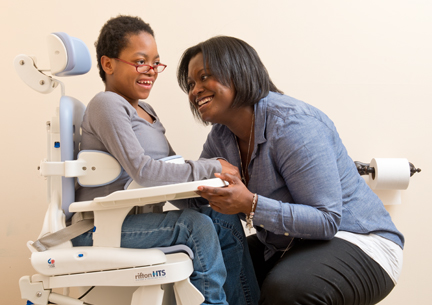How Rifton’s Hygiene and Toileting System (HTS) Improves Quality of Life
Toilet training can be a transformative step for children with disabilities and their caregivers. When children are toilet trained, they gain independence to explore new places and engage more fully with their communities, unrestricted by the need for diaper changing stations.
The benefits extend beyond convenience – it provides opportunities for motor development through sit-to-stand transfers and often improves communication as children learn to express their needs. Regular toileting routines can help prevent constipation and reduce anxiety, while fewer transfers mean safer, more comfortable care for caregivers.
But the greatest benefit is dignity. For those who work with incontinent children, we understand the profound psychosocial impact when we can provide someone the skills and equipment for privacy. As clinicians, we must show our clients the respect and dignity they deserve.
Transcript
Toilet training can be a transformative step for children with disabilities and their caregivers. Imagine the freedom that comes with greater independence. When children are toilet trained, they’re not just more comfortable. They can explore new places and engage more fully with their communities. No longer restricted to locations with diaper changing stations, they can join in activities and travel with ease.
But the benefits extend beyond convenience. Toilet training offers valuable opportunities for learning and motor development. Children get to practice important skills like sit-to-stand transfers, which are essential for their growth. Plus, caregivers often notice that communication improves. Using systems like the HTS for toilet training encourages simple yes or no questions, helping children express their needs more clearly.
There’s also a positive impact on physical health. Regular toileting routines can help prevent constipation and the anxiety or discomfort that sometimes accompanies it. By avoiding accidents, children and caregivers alike can reduce stress and embarrassment. Independent toileting also eases the burden on caregivers. Fewer transfers mean less lifting and safer, more comfortable care.
But all these benefits pale in comparison to the greatest of all: the gift of dignity. Only those of us who have worked with an incontinent child will truly understand the psychosocial benefit that accompanies this critical development – when we can give someone the skills and the necessary equipment to achieve privacy. As clinicians, we need to do all we can to tell our clients, “We respect you; we want to treat you with the dignity you deserve.”







